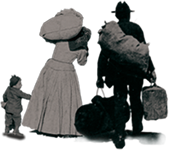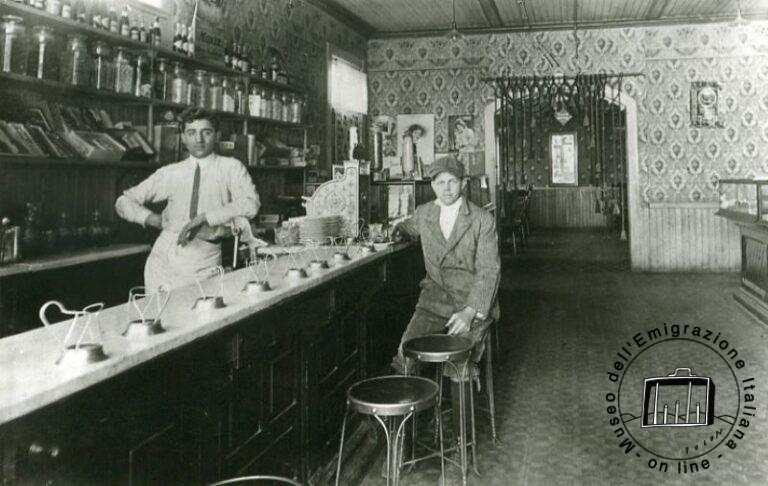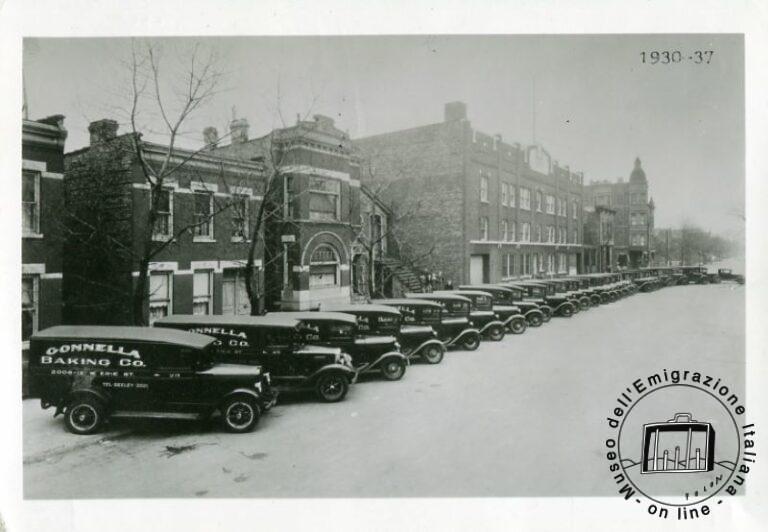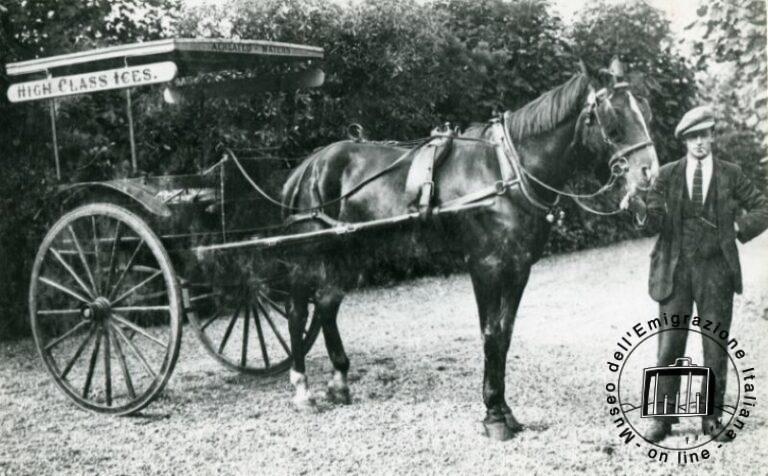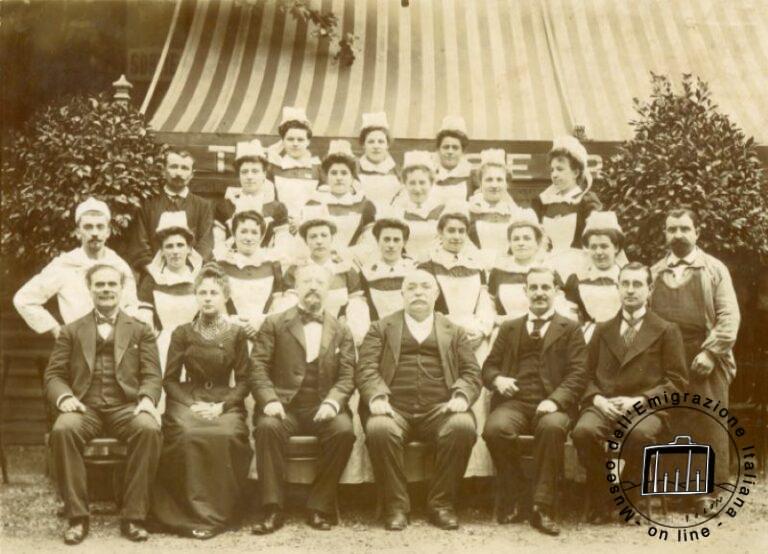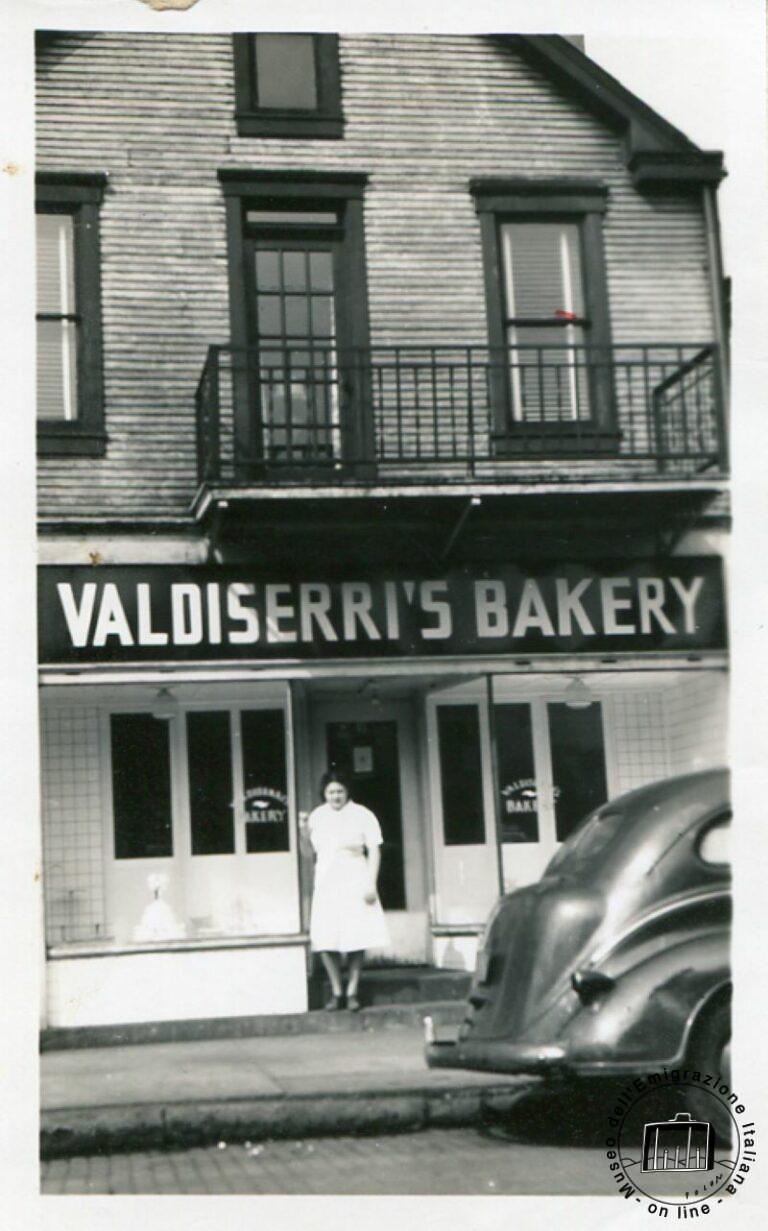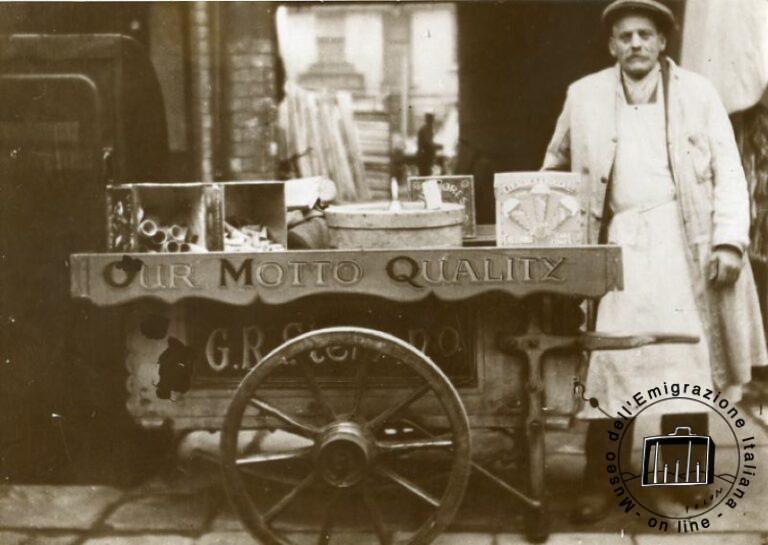It is the catering industry in which Italian emigrants and their descendants in every country in the world have worked and are working in large numbers and successfully. At first they were street vendors of ice cream in the summer and of roasted chestnuts in the winter; the presence of people from Lucca and Parma was predominant among them. Once they became settled, they had their first experiences as subordinate workers: waiters, scullions and, later, cooks in restaurants and hotels. Finally: owners. If the first restaurants were places for our compatriots to socialize, they soon attracted clientele of all ethnicities and spread like wildfire through the territory of each town.
In this area, too, the family has always been a decisive part of the development of any migratory project since the conduct of the various activities is the almost exclusive work of the family. Moreover, now that many Italian cooks and restaurants are considered among the finest in the world, it is worth remembering the first clueless "cucinieri," men who improvised themselves as such by dredging up fragments of their women's culinary activities from memory and striving to reproduce them.
Exemplary is the unfolding of this type of emigration to the United Kingdom. From London, the first point of attraction, they moved progressively to the larger provincial cities, from Manchester to Liverpool; to the industrial areas of South Wales; to Scotland, particularly Glasgow; and even to Ireland, to Dublin, opening stores and bars in all these places.
Such refreshment places, spread like wildfire even in very small towns, became places of socialization favoring the insertion of our compatriots in an environment that, because of difficulties of language, customs and traditions, seemed to be uncongenial to them.
The same process took place for ice-cream shops: the first step was summer cart sales then moved on to ice-cream shops, in which, due to climatic conditions that were not very propitious during much of the year, other products were also sold: mineral water, various soft drinks, coffee, cakes, jams and chocolate. It was Scotland that was particularly "invaded": in the early twentieth century in about two hundred locations there were a thousand establishments with about five thousand employees.
In the early days of their "entrepreneurial" activity, a curious reason for the success of the clubs, which often just sold fish and chips, was their differentiation from the traditional pubs, which were frequented by men only (minors were not allowed given the substantial amount of alcohol that was consumed). Italian pubs were, on the other hand, open to women and boys for the same reason (no alcoholic beverages were sold).

